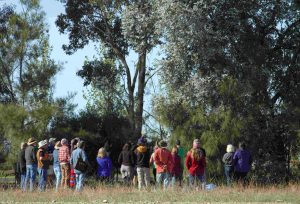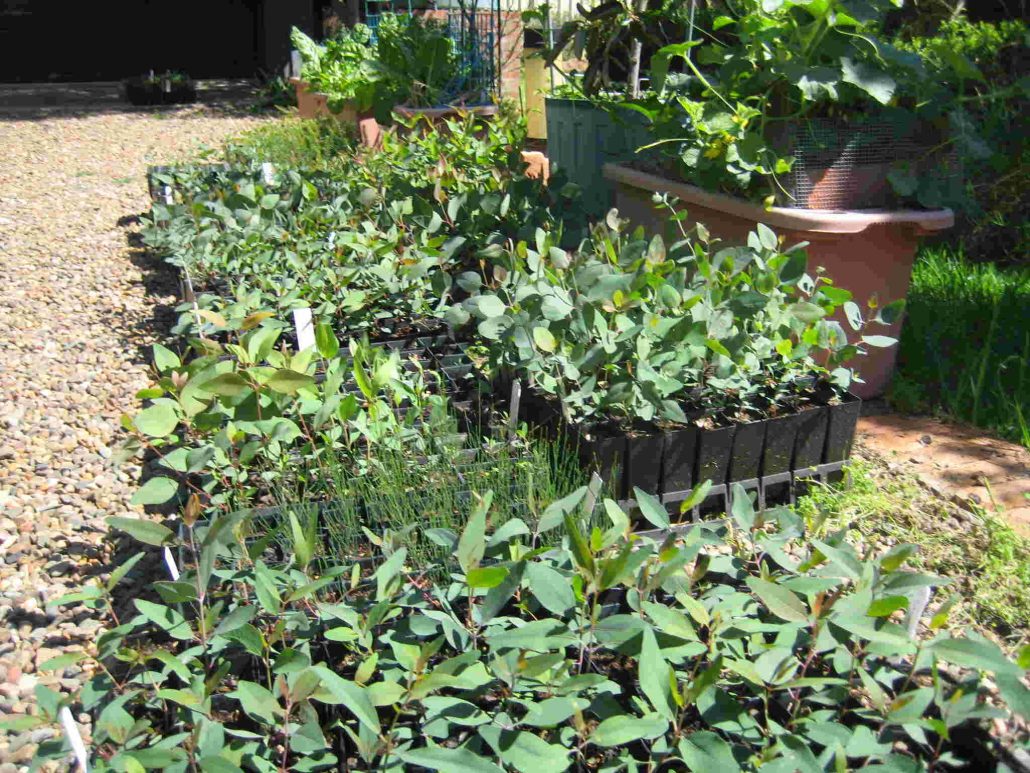Locally suited plants project
Whether you are planting paddock tress, windbreaks or just establishing a few natives in the garden, plants grown from seed of local provenance provide the best chance for success.
The reason for this is that local plants are more suited to the local environment. They would have evolved over time to cope with environmental variables such as rainfall patterns, frosts, winter and summer extremes, soil types and landscape position.
Watershed Landcare’s ‘Local Plants for the Local Environment’ project provided our community with locally grown, native tubestock as well as building their knowledge and skills to grow their own by selecting for viable seed, ensuring successful germination and giving seedlings the best start.
The project, funded by Michael King and Landcare Australia, aimed to highlight the importance of plant selection for re-vegetation projects, focusing on the benefits of utilising locally sourced, endemic seed for propagation. Namely, local native plants:
- are likely to be better adapted to the local environment, including the soil and climatic conditions,
- are more likely to readily establish and regenerate than those from alternate sources and require less care,
- provide habitat for beneficial local native fauna, while keeping the unique character of the local landscape,
- not only look like they belong, but help to maintain the health of the local environment.
Watershed Landcare volunteers identified suitable seed collection sites, conducted seed collection excursions and processed, propagated and grew 1100 plants. Eucalyptus, casuarina and hardenbergia species were grown from locally collected seed and additional acacia, angophora, brachychiton, callistemon, eucalyptus, grevillea, hakea and lomandra seed was obtained from other sources.
The mature tubestock was made available to Watershed Landcare members conducting on-ground re-vegetation projects as well as the wider community at the Mudgee Small Farm Field Days.
A seed collection and propagation workshop was also run as part of the project, providing participans with hands-on experience of basic identification features of some commonly found local plant species; the tools and techniques required to select viable seed; timing, methods, storing collected material; equipment and processing of collected material; methods and materials for propagation and the best time to sow seed.

Seed Collection: Participants learning how to collect and propagate native seed at the Local Plants for the Local Environment workshop.
The emphasis of the workshop was to introduce people to a few tricks to ensuring a good germination, and doing so at low or no cost in terms of equipment. Participants also gained an insight into local plant ecology and had access to seed and material propagated on the day.
Ever wanted to grow your own native plants? Our volunteers are busy growing the next batch of tubestock, contact us to find out how you can get involved: info@watershedlandcare.com.au.

